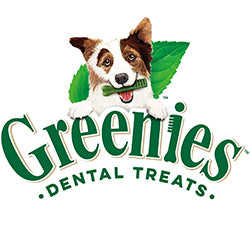
Understanding pet allergies and how to manage them
Owning pets brings an unparalleled joy and warmth to our lives. However, for some, this joy is often marred by allergic reactions. If you are or know someone grappling with pet allergies, understanding and addressing them is paramount.
Deciphering Pet Allergies
When your immune system overreacts to proteins present in a pet's urine, saliva, or skin cells, it's termed as a pet allergy. While most pets can cause allergies, the usual culprits are our feline and canine friends.
What Triggers These Allergies?
- Pet Hair: Although it's not inherently allergenic, pet hair can trap other allergens like dust, pollen, or mold, acting as a carrier.
- Skin Flakes (Dander): Small pieces of skin that pets shed are among the most common causes of allergies.
- Saliva: When animals groom themselves, the dried saliva which gets deposited on their fur can become airborne and trigger allergies.
- Urine: The proteins from pet urine, especially when it dries and becomes airborne, can induce allergic reactions in sensitive individuals.
Identifying Symptoms of Pet Allergies
Knowing what to look for is half the battle:
- Repeated sneezing
- A consistent runny or stuffy nose
- Pressure or pain in the face due to nasal blockage
- Breathing difficulties, wheezing, or a persistent cough
- Eyes that itch, water, or turn red
- Unusual skin patterns like rashes
Getting a Proper Diagnosis
If you observe any allergy signs, an allergist can pinpoint the cause and suggest remedies.
Skin Prick Test: Tiny amounts of allergens are introduced to your skin. Allergies manifest as raised bumps in response.
Blood Analysis: This examines the amount of allergen-specific antibodies present.
Strategies to Counter Pet Allergies
Having allergies doesn't necessarily mean parting from your beloved pet. Here's how you can manage:
- Allergy-Free Zones: Designate areas, preferably bedrooms, where your pet is strictly not allowed. Using HEPA filters in these spaces can be beneficial.
- Regular Cleaning: Dust and vacuum often. Vacuum cleaners equipped with HEPA filters can help trap allergens effectively.
- Bathe Your Pet: A weekly bath can keep allergens in check. However, ensure it doesn't adversely affect your pet's skin.
- Hypoallergenic Breeds: Some pet breeds are known to produce fewer allergens. Research before adopting.
- Air Cleaning: An air purifier can significantly reduce allergens in indoor air.
- Hand Hygiene: Post interacting with your pet, washing your hands can minimize the transfer of allergens.
- Opt for Non-carpeted Flooring: Hard floors don't trap dander as efficiently as carpets.
- Medications: OTC medications can alleviate symptoms. Discuss with your doctor for prescription alternatives.
- Allergy Injections: Immunotherapy or allergy shots can help build tolerance to pet allergens over time.
- Routine Pet Grooming: Regular grooming sessions can help minimize dander and hair-related allergens.
- Outdoor Pets: As a last resort, and if it's feasible, you might consider allowing your pets to live outdoors.
Emotionally Navigating Pet Allergies
Discovering a loved one is allergic to a cherished pet can be devastating. Before making drastic decisions, weigh all possible solutions. Remember, pets are family. With a few lifestyle modifications and medical interventions, it's often possible to coexist with pets harmoniously, even with allergies.
In Conclusion
While pet allergies are a concern for many, there are ample strategies and interventions available today to help affected individuals live comfortably with their pets. Knowledge, proactive measures, and timely medical advice can significantly enhance the pet-owning experience for allergy sufferers.
- Choosing a selection results in a full page refresh.












